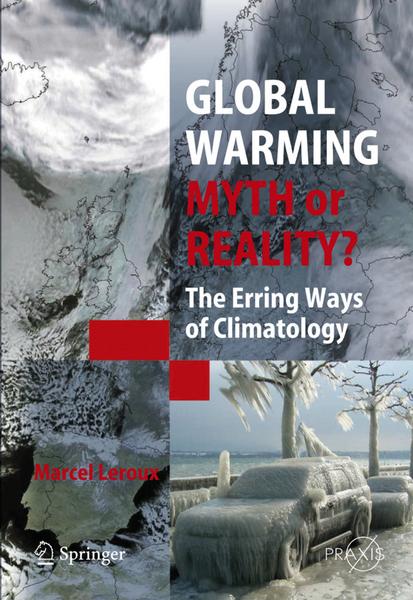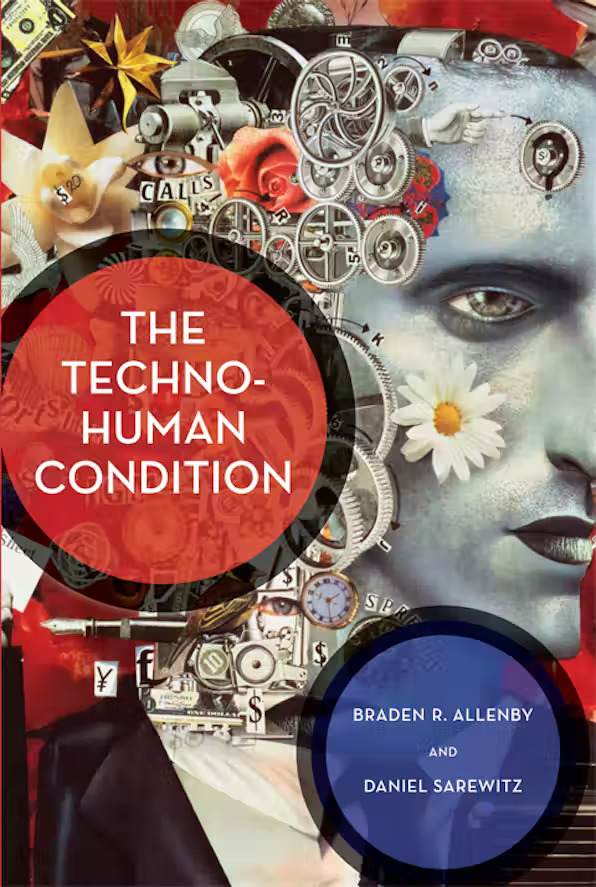Or consider a more topical example. Virtually everyone is aware of global climate change, which vies with terrorism for billing as the top existential catastrophe. Stand away from the Kyoto Protocol process and the surrounding hysterics pro and con, however, and take a longer perspective. What the climate change negotiation process taken as a whole represents, fitful and ad hoc as it is, is the dawning of a realization that, regardless of what results from current international negotiations, our species will be engaged in a dialog with our climate, our atmospheric chemistry and physics, and the carbon cycle so long as we exist at anywhere near our current numbers on the planet.

Meteorology, the science of the weather and of its prediction, has always been, both in the past and even more so in the present, the target of criticism and even jibes, the standard of its forecasting leaving much to be desired. In the words of one humorist among many, `Weather forecasting is a science which tells us about the weather we should have had !' (P. Bouvard). We can't really know what the weather will be like more than two or three days ahead, as many forecasters will confirm. But now, all this has been erased in a trice! Now, it is unhesitatingly claimed, we can predict weather and climate (which is the sum of weather) as far ahead as the year 2100, from our viewpoint a century earlier! Astrology or science?

Prosper-René Blondlot (1849–1930) was an accomplished French physicist who received three prizes from the Académie des Sciences for his work in electromagnetism. Despite this, he is best known for his role in one of the classic scientific blunders of modern times. In 1895 German scientist Wilhelm Röntgen discovered X-rays, electromagnetic radiation with a wavelength ranging from 0.01 to 10 nanometers. This discovery made Röntgen famous and brought significant prestige to the German physics community. The discovery also created the expectation that other forms of electromagnetic radiation would soon be discovered, and many physicists, including Blondlot, sought to do just that. It was therefore not surprising when, in 1903, Blondlot announced the discovery of another source of radiation that he named N-rays (after his birthplace, Nancy, France, and his university). Between 1903 and 1906 no less than three hundred papers on N-rays were published in the scientific literature, involving about a hundred scientists and medical researchers. At least forty scientists claimed to see these N-rays. Blondlot reported that N-rays were produced by many types of matter, both living and inert (everything except green wood and some treated metals), and that their strength increased with the “psychic activity” of the source. His experimental setup included a hot wire inside an iron tube to generate the N-rays, which were then refracted through a 60-degree angle prism of aluminum, and in turn were detected by a calcium sulfide thread that would glow slightly. The subtle glow could only be perceived in the dark by those with sharp vision. Other researchers discovered much about the properties of N-rays: They could apparently penetrate metal and wood but were blocked by water. Medical scientists discovered they were emitted by muscles and the human brain and hoped they would be as useful in medical diagnosis as X-rays were turning out to be. It was discovered that N-rays could be transmitted over a wire. The science of N-rays was taking off, but there was one slight problem. N-rays do not exist. All of this research was nothing more than self-deception.
(...)
The story of N-rays is a classic cautionary tale of pathological science, bias, and self-deception among otherwise accomplished scientists. And yet the story is not nearly as well known as it should be. The French scientists ignored many red flags that should have stoked their own skepticism. In science it pays to be one’s own most vehement critic and greatest skeptic. This means trying earnestly to prove your own hypothesis wrong, and tentatively accepting it only to the degree that it survives dedicated attempts at doing so.
Latest
- Giving a Voice to the Past: Intangible Heritage and Forgotten Territories 25 October 2025
- Donner une voix au passé : patrimoines immatériels et territoires oubliés 25 October 2025
- Tra overtourism e undertourism: la ricerca di equilibri territoriali sostenibili 21 June 2025
- Overtourism and Undertourism: The Challenge of Managing Contemporary Tourism 21 June 2025
- Overtourism et undertourism : le défi de la gestion du tourisme contemporain 21 June 2025
Most read
- Le alterazioni dell’ecosistema
- Le tourisme urbain
- La théorie du cycle d'erosion et critique du modèle davisien
- Gestione del comprensorio montano del Ceresio (InterReg II)
- Strumenti e strategie per la condivisione e la valorizzazione dei patrimoni culturali ticinesi, Convegno Digitalizza la cultura
- Globetrotter: un nuovo modo di viaggiare
- Un museo per viaggiatori e avventurieri d'inizio secolo

Osare: il progresso si ottiene solo così.
Oser: le progrès est à ce prix.
To dare; that is the price of progress.
Victor Hugo, Les Misérables

